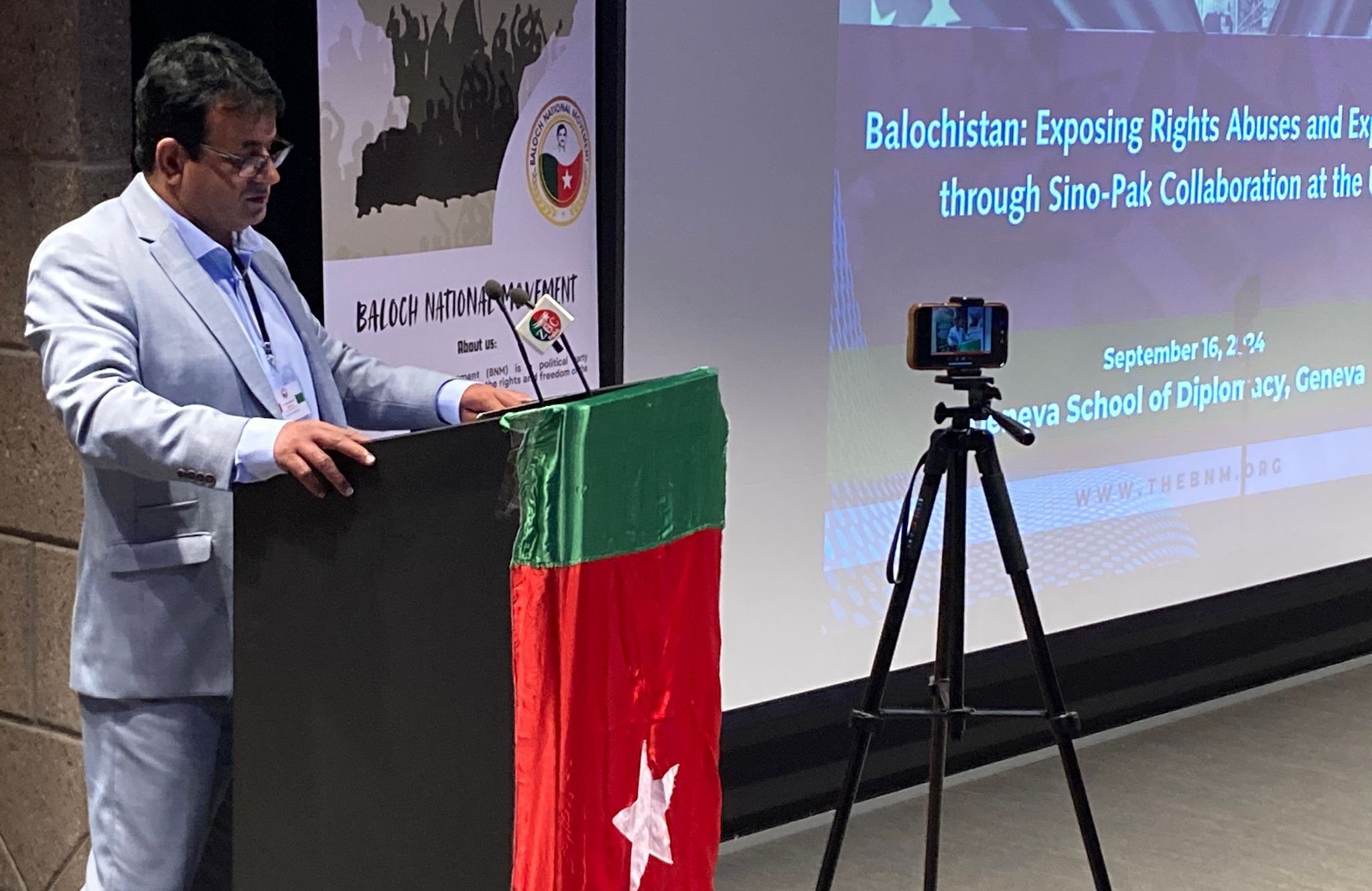Ladies and gentlemen, distinguished guests,
I stand before you today with deep gratitude for the opportunity to address such an esteemed audience. I extend my sincere thanks to our guest speakers and to all who have traveled from near and far to be here. Your presence gives this conference its meaning and impact.
My name is Dr. Naseem Baloch. I once served as a physician, caring for the poor and needy in the rural areas of Balochistan. Today, I stand before you not as a doctor, but as an exile, far from my homeland, living in France. Some may assume that moving from underdeveloped Balochistan to a developed country like France was a pursuit of a better life. But for us, the Baloch, this was never a choice. Before 2010, very few Baloch sought refuge in Europe.I was twice abducted and tortured for months by Pakistan’s intelligence agency, the ISI. Left for dead by the roadside one night, I survived. But the pursuit of my life did not end, and eventually, I had no choice but to flee.
Today, I am not here to seek sympathy or to recount my personal suffering, but to share the story of my people, the Baloch nation—a story that echoes not only in Balochistan but also among the Pashtuns, Sindhis, the people of Gilgit-Baltistan, and Kashmiris. All these peoples face similar brutalities at the hands of the Pakistani state.Ladies and gentlemen,When you hear the name Balochistan, you may think of a region, a place on a map. But Balochistan is more than just geography—it has become a graveyard of hopes and lives, where humanity is continually violated.
Distinguished guests,
I am here to share the heartbeat of my nation, the pain that defines our relentless struggle for survival. As a representative of the Baloch people, I seek to awaken the conscience of the international community. Yet my voice alone is not enough. The cry of the Baloch people will not shake the world unless we all stand united against this grave injustice.
Balochistan was once a free and independent state. Our freedom was stolen from us, and we were made slaves in our own land. But the Baloch are a resilient people. We have never surrendered. We have chosen resistance, a resistance that is both morally and legally justified under international law. For over 24 years, our struggle has persisted, but Pakistan has met our rightful resistance with terror and oppression.
Some may ask why I use such strong words—why I label Pakistan a “terrorist state” on an international stage. I do so because these are not just words, they are facts. Pakistan operates beyond the rule of law, turning Balochistan into a slaughterhouse. Under the pretext of “collective punishment,” they seek to crush our resistance by terrorizing our people. There is hardly a family in Balochistan that has not been touched by these atrocities. Loved ones have been forcibly disappeared, tortured, or killed. Bodies are rarely returned to families—mutilated remains are found discarded in deserts. Families are left in agonizing uncertainty, unsure whether their missing are dead or alive.
In Mastung, there is a cemetery known as the ‘Cemetery of Unknown Bodies,’ where victims are buried without identification or any attempt at DNA testing. Can a state that respects human rights and the rule of law behave this way? No. Only a terrorist state could commit such atrocities.
Pakistan does not act alone. It has found a partner in oppression: China. China’s strategic projects in Balochistan, especially those aimed at controlling regional power and the Strait of Hormuz, are wreaking havoc on millions of Baloch lives. These projects may seem distant to many in Europe, but the consequences will not remain confined to Balochistan—they will eventually affect the world.I challenge anyone to uncover the details of the agreements between Pakistan and China regarding Balochistan. You will find none, because the people of Balochistan have been excluded from every decision regarding their land and resources.
Ladies and gentlemen,
Today, it is not just the voices of the Baloch that I bring before you. The Pashtuns, Sindhis, Kashmiris, and even the Uyghurs—all victims of oppression, genocide, and exploitation—are echoed in this room. The struggles of these nations are not isolated; they are intertwined.We know that the cycle of violence, repression, and exploitation will not easily end. But our collective voice can reduce its intensity. It is important, however, to be realistic. Our primary struggle is not just against human rights violations. It is a struggle for our national freedom.
Human rights abuses will not cease until we achieve our rightful independence.Balochistan is our ancestral land. It was once free, and today it is occupied. We are demanding our rightful freedom and independence under international law and the principles of humanity. This is a right we will never abandon. Our sacrifices will continue, and we will not rest until we are free.
Long live the struggle for a Free Balochistan.
Dr. Naseem Baloch’s Speech at the 5th Balochistan International Conference of BNM, Geneva – 16 September 2024



